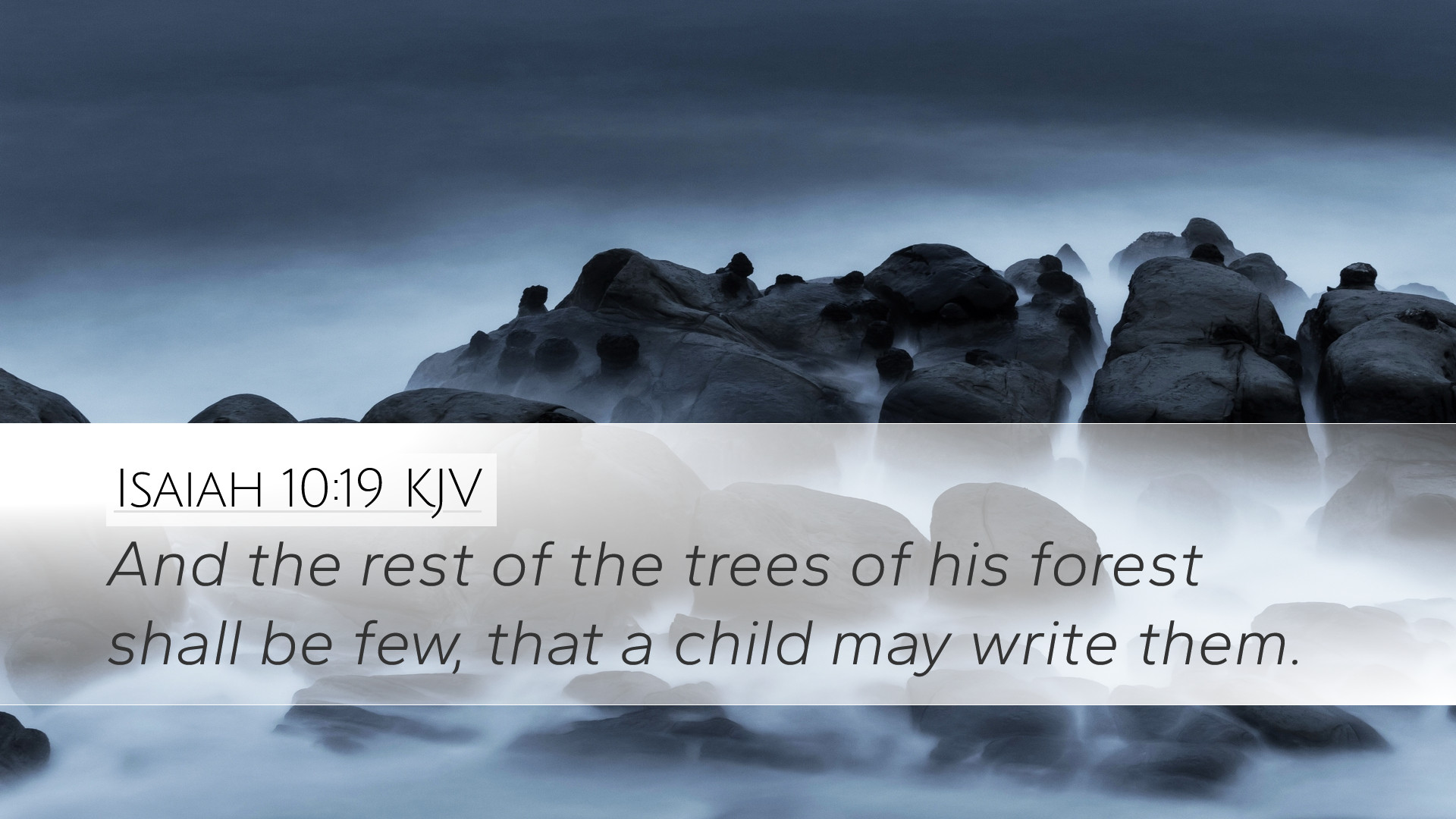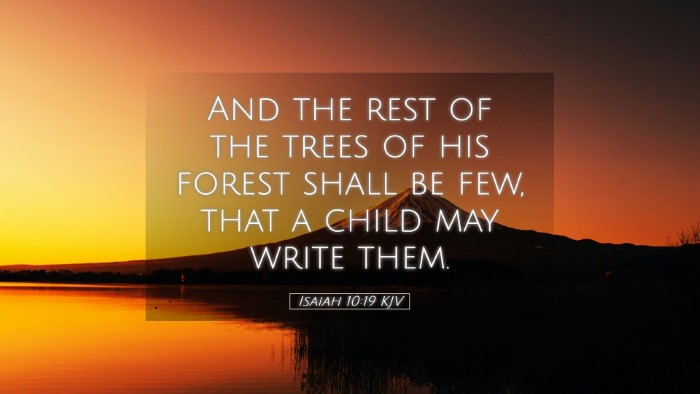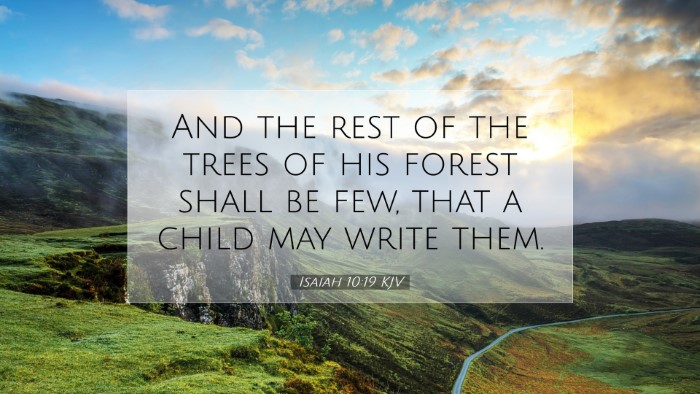Commentary on Isaiah 10:19
Isaiah 10:19 states:
"And the rest of the trees of his forest shall be few, that a child may write them." (KJV)
This passage, rich in metaphor and prophetic significance, encapsulates the aftermath of divine judgment and the stark reality of human frailty. Below, we explore insights from well-respected public domain commentaries to provide a comprehensive understanding of this verse.
Contextual Background
The Book of Isaiah presents a mix of messages of judgment and hope. In the chapters leading to Isaiah 10, the prophet Isaiah addresses the arrogance and impending doom facing the Assyrians, a powerful nation that God would eventually use as an instrument of His judgment against Israel and Judah. In verse 19, the imagery of a forest being reduced to few trees serves as a poignant metaphor for destruction and loss.
Insights from Matthew Henry
Matthew Henry, in his exhaustive commentary, draws attention to the unique implication of the phrase "the rest of the trees of his forest." He explains that this symbolizes the elite and prominent figures within the Assyrian empire or the powerful nations more broadly. The contrast he emphasizes is significant:
- Symbol of Strength vs. Weakness: Henry articulates that forests typically represent strength; however, the reduction to merely a few trees highlights vulnerability and impending defeat.
- Divine Judgment: The destruction becomes a physical manifestation of God’s displeasure with pride and oppression.
Moreover, Henry points out that even a "child may write them," indicating how diminished the remnants of such a powerful force have become. It depicts a reality where what was once robust has been rendered so small that even a child could count them.
Insights from Albert Barnes
Albert Barnes offers a complementary interpretation, placing his emphasis on the nature of Assyria’s downfall. He articulates the following points:
- Visions of Desolation: Barnes suggests that the graphic imagery of trees reflects the totality of devastation—indicating that the empire will be so decimated that it will be as if the forest of greatness, once filled with many trees, has been reduced to almost nothing.
- Child-like Simplicity: The notion that a child may write them emphasizes innocence and simplicity in recognizing the obvious truth of the Assyrian downfall—a contrast to the delusion of their pride.
Barnes also addresses the overarching theme that God’s power prevails over human arrogance, affirming that the strength of nations is transient and subjected to divine sovereignty.
Insights from Adam Clarke
Adam Clarke provides a more detailed exploration of the mystical and literal interpretations of the text. His commentary focuses on:
- Manifestation of God’s Will: Clarke notes that the verse reflects the unfolding of God’s plan, where He uses nations to fulfill His purposes, particularly through judgment.
- The Imagery of Trees: He explains that the trees can be viewed both as symbols of the leaders and the common people. The “few” remaining trees signify the dwindling power and influence of Assyria.
- Children as Witnesses: Clarke remarks on the implication that the simplicity and clarity of a child’s view stand in stark contrast to the false wisdom of the powerful, which fails to see the reality of God’s judgment.
Clarke’s analysis thus reinforces the need for humility before the Almighty, acknowledging that all human glory is temporary.
Theological Implications
The interpretation of Isaiah 10:19 leads to profound theological implications for understanding divine judgment:
- Transience of Human Authority: The text serves as a reminder that all human power is fleeting compared to God’s eternal sovereignty, challenging the perception of invincibility that nations often carry.
- Judgment and Restoration: As with many prophetic texts, this verse presages not only the judgment of the Assyrians but also God’s intention to restore His people, offering hope beyond destruction.
- Call to Repentance: For contemporary readers, it echoes a universal call to humility, repentance, and recognition of God’s overarching authority in all matters.
Conclusion
In conclusion, Isaiah 10:19 serves as a powerful reminder of God’s sovereignty over nations and the inevitability of divine judgment against pride and rebellion. The rich commentaries from Matthew Henry, Albert Barnes, and Adam Clarke collectively amplify our understanding, encouraging scholars, theologians, and pastors alike to reflect on the transitory nature of power and the enduring nature of God’s will.
As modern-day readers engage with this text, it is crucial to consider its implications for both personal faith and broader societal constructs, placing God’s truth at the center of their lives.


